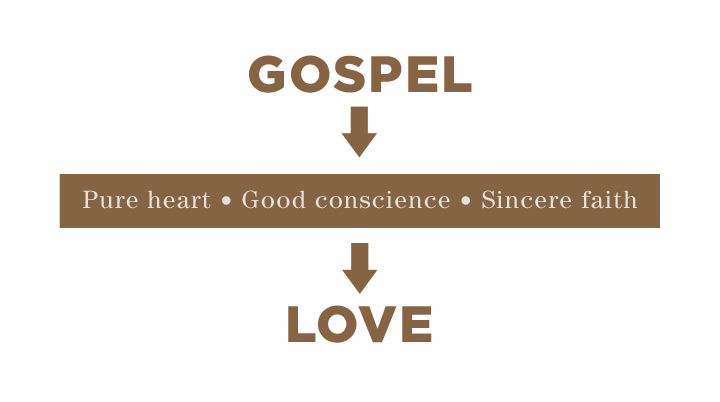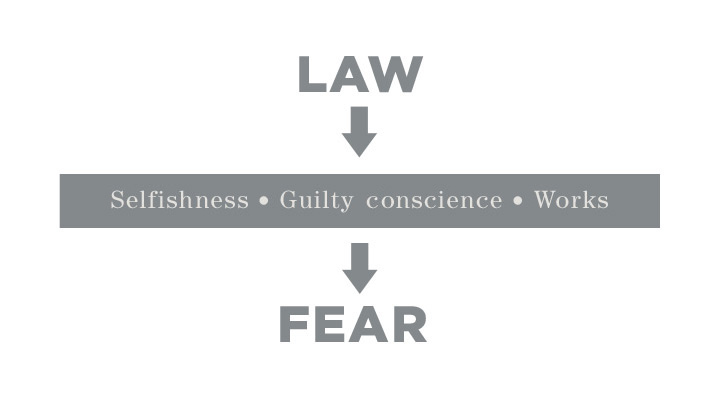Latest
-
Objections to the Christian Faith from the Unchurched and De-Churched
 Tue Dec 02, 2014
Tue Dec 02, 2014
by Resurgence -
Craig Groeschel: We Innovate for Jesus
 Tue Oct 14, 2014
Tue Oct 14, 2014
by Resurgence -
Mark Driscoll: Revelation
 Tue Oct 07, 2014
Tue Oct 07, 2014
by Resurgence -
RESURGENCE LEADERSHIP #034: JOHN PIPER, WHY I TRUST THE SCRIPTURES, PART 2
 Tue Sep 30, 2014
Tue Sep 30, 2014
by Resurgence -
Resurgence Leadership #033: John Piper, Why I Trust the Scriptures, Part 1
 Tue Sep 23, 2014
Tue Sep 23, 2014
by Resurgence

Archives
How to love people well

As Paul wrote to Timothy, the missionary’s charge is love that comes from a pure heart, good conscience, and sincere faith. So what does each of those look like?
As I urged you when I was going to Macedonia, remain at Ephesus so that you may charge certain persons not to teach any different doctrine, nor to devote themselves to myths and endless genealogies, which promote speculations rather than the stewardship from God that is by faith. (1 Tim. 1:3–4)
Love in the time of false teachers
Ephesus had some strange and challenging doctrinal issues during the time of the New Testament. There was mysticism and legalism, and even the idea that people were made right with God by virtue of their family tree. False teachers were rampant—that’s one of the reasons Paul sends Timothy to go to Ephesus. We read his charge to Timothy regarding these problems:
The aim of our charge is love that issues from a pure heart and a good conscience and a sincere faith. (1 Tim. 1:5)
Paul says that, at the end of the day, he and Timothy will know they did their job if people love each other well.

Love emanates from these three things: a pure heart, a good conscience, and a sincere faith. If we understand the opposite of these three things it may help us get a clearer picture of the connection of the gospel to love.
Selfish heart vs. pure heart
What is the opposite of a pure heart?
A selfish heart.
Have you noticed selfishness in your own heart or seen it others? Self-focus rather than a focus on others? This is always a gospel issue. If we teach the law apart from Jesus’ gospel, we become selfish. Because the law cannot fix the heart; it can only expose its flaws. But the gospel changes people from the inside out.
Guilty conscience vs. good conscience
What is the opposite of a good conscience?
A guilty conscience.
That’s the problem with the law. Not only are we selfish, but we have a guilty conscience. The law can’t make us righteous or cleanse us; it can only point out where we fall short of the glory of God and the standards of Jesus.
But the gospel is different. Even when we do everything wrong God still loves us, and our righteousness before him is found in Jesus.
Religious works vs. sincere faith
What is the opposite of sincere faith?
Religious works.
What we see throughout the epistles, especially the letter to the Galatians, is Christians defaulting back to the law. They may appreciate Jesus for providing a clean start, but are now going back to working hard to keep the law in their own strength.

But the gospel changes us by faith. As we trust Jesus in the power of the Holy Spirit in everyday life, we progressively become more and more like him.
Do you see how challenging Timothy’s role in Ephesus was, and how it’s similar to ours? The same issues he was dealing with over 2,000 years ago are the same issues we deal with today.
We cannot will ourselves or church into a cultural change.
Where are you and where is your church? Selfish heart, guilty conscience, and works all based on the law will produce fear, whereas living in light of the gospel will produce a pure heart, good conscience, and a sincere faith in love.
If we are going to produce a change in culture, we have to continually preach the gospel to each other. We cannot will ourselves or church into a cultural change. If we want to have a church that loves people well, we have to rely on the person and work of Jesus Christ to change our hearts and others.